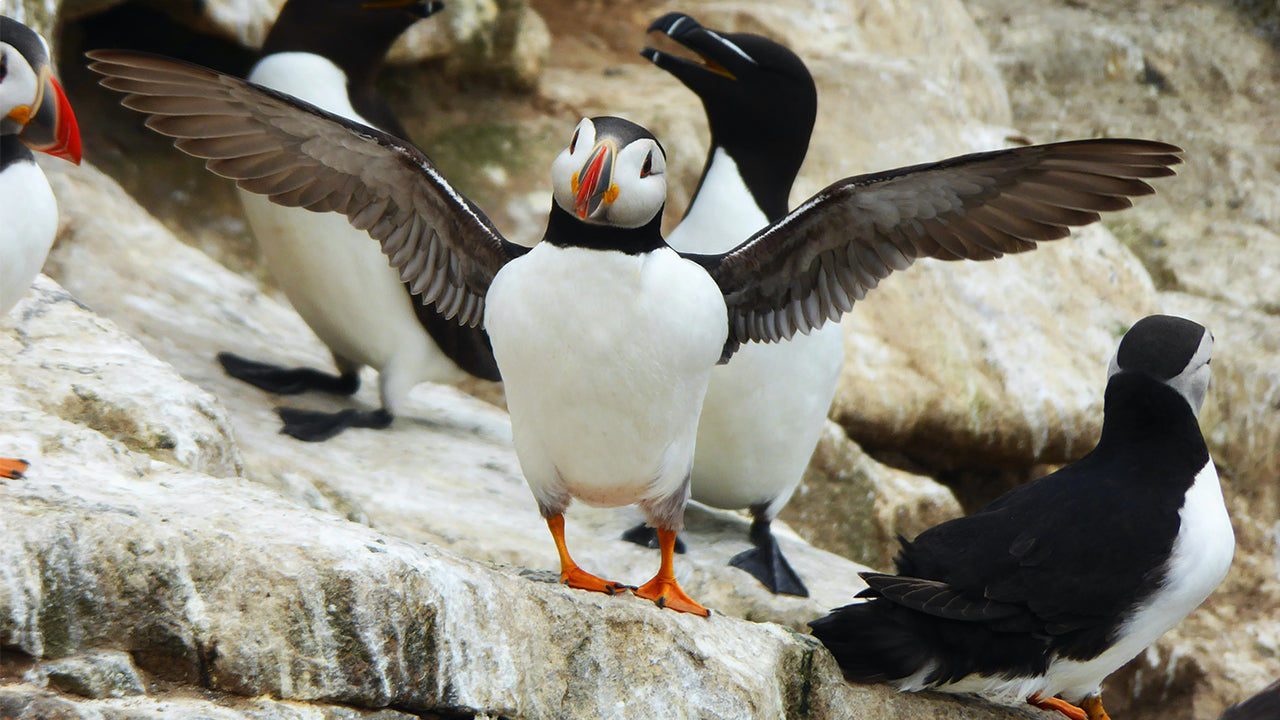
21, December 2023
A Year of Nature's Rights
It’s been an excellent year for Nature's rights. In case you didn’t know, the Rights of Nature movement recognises that our ecosystems (including things like natural bodies of water, animals and trees) are entitled to legal rights, just like people. It recognises that we’re part of Nature, rather than separate or better than it – it’s what underpinned our decision to give Nature a seat on our board. And the movement is making a huge difference to the future of our planet. Here are some Nature rights highlights from the past 12 months.
Supporting the Orcas
In January, Jefferson County, Washington State became the sixth local government to declare inherent rights for the Southern Resident Orcas of the Puget Sound. And throughout 2023, support for the legal rights of these critically-endangered creatures has grown from strength to strength.
The Southern Residents are of great cultural, spiritual and economic importance in the Pacific Northwest region – and have been of particular significance to the Coastal Indigenous People for centuries. But the killer whales are threatened by pollution, vessels and salmon shortages, and fewer than 80 of them remain.
Since January, four more councils have signed declarations for the orcas’ rights: San Juan County and Pierce County in Washington State, Depoe Bay in Oregon and Arcata in California. And in May, a bill to stop boats getting too close to the animals was signed into law. With more authorities acknowledging the legal rights of these magnificent marine mammals, hopefully 2024 can only get better for them.
Rights for the Rivers

In February, Lewes District Council passed the UK’s first rights of river motion for Sussex’s River Ouse, marking the start of a journey towards the river gaining legal status as laid out in the Universal Declaration of River Rights. The declaration states that rivers have: “The right to flow; The right to perform essential functions within the river’s ecosystem; The right to be free from pollution; The right to feed and be fed by sustainable aquifers; The right to native biodiversity; and the right to regeneration and restoration.”
The concept of rights for rivers is relatively new to the UK, but in some other countries, particularly those whose Indigenous communities deeply value and respect Nature, it is already established. Canada, Australia, New Zealand and Bangladesh have already given rivers legal rights, and in August, the Komi Memem River in Brazil was officially designated as a living entity. With at least 384,000 sewage discharges from water companies into our waterways in 2022, and most of our rivers deemed unsafe for swimming, there’s never been a more urgent time for the rights of rivers to be recognised here in the UK.
It is hoped that the Lewes motion will inspire other UK authorities to move towards granting legal rights to their rivers. Already, nearby Arun District Council is planning a debate on rights for the River Arun – let’s hope many more are to come. In the meantime, read our blog on how to take action for our rivers.
Caring for the Cloud Forests

Throughout 2023, the Rights of Nature movement has continued to make a difference to some of the most important and vulnerable ecosystems in the world.
The Intag Valley in Ecuador gained an extra layer of protection when copper mining in the region was banned in March. The cloud forests of Intag are home to unique wildlife, with more than 50 percent of its species found nowhere else on earth. Residents have been campaigning against pollution-causing mining there for almost 30 years. The longnose harlequin frog, which was thought to have become extinct in the 1980s, before being rediscovered in in 2016, became an emblem of the campaign. On 29th March, Imbabura Provincial Court ruled that an ongoing copper mining project violated communities’ constitutional right to consultation and the Rights of Nature that have been enshrined in Ecuador’s national constitution since 2008.
Where Next?

So far, Ecuador, Bolivia and Panama have Nature’s rights enshrined in their national constitutions – and others are making steps to do the same. On the eve of Earth Day in June, Aruba proposed an amendment to its constitution to recognise Nature’s rights. The ecologically-rich Caribbean nation is home to blue lizards, sea turtles and the Aruban Parakeet. With white sandy beaches and turquoise waters, the island is a popular tourist destination – but it is tourism, along with climate change, that is threatening its diverse habitats. Writing the rights of Nature into the constitution would protect those habitats, and make Aruba the second country in the world after Ecuador to make this pioneering change.
Closer to Home

Closer to home, Ireland may become the first European country to give Nature legal rights. The Joint Committee on Environment and Climate Action has recommended that a referendum be held on protecting biodiversity by writing Nature’s rights into Ireland’s constitution – and the government are currently considering it. If it goes ahead, this ballot could help secure the future of Ireland’s biodiversity and its endangered species, including puffins, Atlantic salmon and the great yellow bumblebee.
Meanwhile, in November, councillors in Eijsden-Margraten in the Netherlands voted to officially recognise Nature as a legal entity that can be recognised in court. A Nature guardian will be appointed to ensure Nature’s interests are considered in all the council decisions made in this beautiful rural region.
With more authorities making changes like these at national and local levels, 2024 looks set to be an even better year for Nature’s rights. Maybe one day, the UK will have Nature's rights written into its constitution. We’ll be looking out for more developments over the coming year and sharing them with you.




